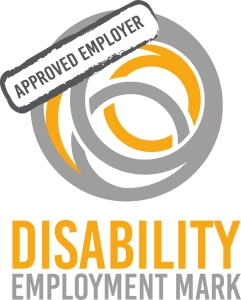Disability Employment Mark Accreditation Panel
Assessments for our bespoke Disability Employment Mark are overseen by an independent Accreditation Panel, which comprises of individuals from different backgrounds, including those with a disability or a long-term health condition, and experience in the different criteria being examined.
The Panel’s role is to ensure assessments conform with criteria expectations and will set new precedents for assessing eligibility going forward.
This will include reviewing all assessments where set evidence requirements are not clearly met, and routinely performing spot-checks on approved applications to ensure consistent standards of assessment are being applied.
Social Enterprise Mark CIC as the independent body providing sector-led verification for social enterprises, and supported employers for DEM, and looks to ensure transparency of evaluation criteria, robust evaluation and strong governance thereby ensuring the value and validity of attaining accreditation.
To protect the integrity of the criteria, the Panel is voluntary and works according to a Memorandum of Understanding.
Meet the Panel
 Martin Davies – Chair of the Supported Business steering Group
Martin Davies – Chair of the Supported Business steering Group
After 20 years in the construction sector, Martin has established a 20 year career within the social enterprise and disability employment sectors.
When CEO of Pluss and as co-founder of the British Association for Supported Employment (BASE), he established himself as a leader within the Welfare to Work sector.
He currently advises social enterprises, charities, local authorities and central government. Martin is passionate about the role of Social Enterprises in all sectors of the economy and in delivering world class public services. He has been instrumental in a number of local authority spin-outs and social enterprise mergers.
Martin is also a Non-Executive Director of Cosmic.
 Will Gardner – Team Manager, Oxfordshire Employment
Will Gardner – Team Manager, Oxfordshire Employment
Will currently leads Oxfordshire Employment; Oxfordshire County Council’s employment support service, which operates County Print Finishers, a highly successful supported business.
Will has over 30 years’ experience in delivering and leading adult social care services within local government and made the switch to supported employment seven years ago.
Currently a member of the Supported Business Steering Group, Will is passionate about the value of supported employment and the vital role supported businesses play both now and in the future.
Will has a particular interest in leadership and is a member of the West Midlands Coaching Pool.
 Leonore Lord – business psychologist
Leonore Lord – business psychologist
Leonore is a commercially minded business psychologist experienced in working with pre-startup, start-up and trading commercial SME’s and social enterprises. Leonore has a track record of mentoring and coaching a wide range of diverse entrepreneurs. Achievement includes business development, securing investment finance & developing employer engagement strategies.
Leonore holds an MSc in Psychology and an MSc in Occupational and Organisational Psychology and has over 15 years of experience providing support to people in a variety of situations, whether they were looking for employment, entering employment or starting up in business. As a Sfedi accredited Business Advisor, Leonore provides motivational support and business advice to a wide range of clients/entrepreneurs, drawing on her experience in business development and account management.
Leonore is active within the community, and prior to setting up True Measure, she held a number of trustee and governance roles in the voluntary and community sector, including as a Trustee of OASIS (Drug and Alcohol charity), Vice-Chair at Newham African Caribbean Community Centre, Chair of London Film Academy, and a panel member for London Community Fund Red bridge panel.
Currently, Leonore is a Trustee of Grove Road One MCH, a Fellow of the RSA and sits on the BPS Specialist Group for Independent Practitioners committee.
 Nicky Stevenson – Social Enterprise/Business Advisor
Nicky Stevenson – Social Enterprise/Business Advisor
Nicky Stevenson has worked in the social enterprise sector for over 20 years. She has been a business adviser in a co-operative development agency and with The Guild, a well-established social enterprise consultancy. She is an Associate Lecturer at Anglia Ruskin University and a board member of Social Enterprise East of England. She previously worked for Charity Bank, a Social Enterprise Mark holder.
She specialises in social impact measurement and has co-written a number of tools to help small organisations measure their impact and she is a trained Social Return on Investment practitioner with full approved advisor status and is a member of the SROI network.
Nicky has a long background with the Social Enterprise Mark CIC, as she was commissioned to design the original application criteria and piloted the assessment process. In 2015 her book (with Helen Fitzhugh) ‘Inside Social Enterprise’ was published by Policy Press.
 Richard Welfoot – Chief Executive Officer, MTIB
Richard Welfoot – Chief Executive Officer, MTIB
Richard Welfoot is Chief Executive Officer of MTIB, an established charity which has been successfully providing training, development and employment opportunities for disabled and disadvantaged people since 1923.
Richard has almost 30 years’ experience in the supported employment industry, from the Supported Employment Programme, through to Workstep and Work Choice and will be soon also be delivering RESTART. Throughout this time, he has successfully managed and developed a commercial Supported Business as well as mainstream training and employment placement contracts, by consistently providing quality and performance.
Richard joined MTIB in 1992 as part of the team appointed to help with the re-organisation of the company. He was instrumental in successfully delivering financial stability and developing MTIB’s products, services and quality to become the largest regional provider of DWP’s Workstep Programme. He was promoted to Chief Executive in January 2011 and has held the role since.
Richard’s current focus is on adapting MTIB to recover following the Covid pandemic by securing contracts for delivery by the Employment & Training team, whilst ensuring that the Supported Business manufacturing unit balances its social and commercial demands to re-engage and sustain the jobs of the disabled workforce.



